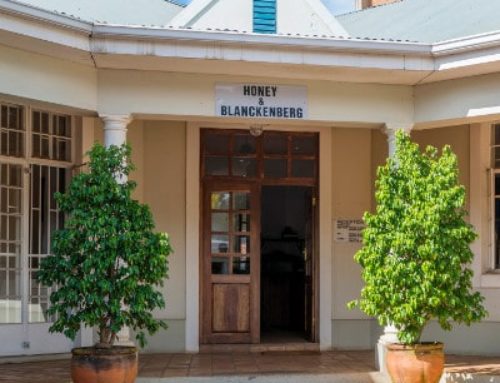On 29 April 2020, as one of the measures taken by Government in response to the spread of COVID-19, and to offer temporary reprieve to those unable to make rental and mortgage payments, the Presidential Powers (Temporary Measures) (Deferral of Rent and Mortgage Payments During National Lockdown) Regulations, Statutory Instrument 96 of 2020 (hereinafter “the moratorium”) was published in an Extraordinary Government Gazette. In terms of the moratorium, any person renting a residential property during the lockdown, may defer rental payments, may not be evicted, and the landlord may not repossess the property, or claim damages against the tenant (own emphasis added. Section 3(1) of the moratorium).
In addition, the moratorium sets out that where a protected tenant fails to make full or part payment of rentals due and owing during the lockdown period, there shall be a conclusive presumption that the tenant is unable to pay by reason of the national lockdown (Section 3(2)(b) of the moratorium). This means that it is presumed that all tenants renting residential premises are unable to pay rent, and the landlord would bear the onus of proving that the tenant did, in fact, have the means to pay as provided for under Section 3(2)(a) of the moratorium. The moratorium does not distinguish between contractual and statutory tenants, and as such, the protection would apply to both equally.
It is interesting to note that the moratorium is very clear in setting out that the deferral in rent only applies to tenants of residential premises and not commercial premises – notwithstanding the fact that (as set out above) many commercial entities will also be facing difficulties in making payments as they are not operating during the lockdown. This may have a knock on effect to their employees who may face more permanent negative impacts arising out of being placed on special measures to avoid retrenchment (under Section 12D of the Labour Act [Chapter 28:01]) or eventually being retrenched due to operational reasons. In preparing the moratorium, the drafters also do not appear to have taken into account the fact that some landlords (and in particular, pensioners) derive their sole income from rentals. It may therefore be argued that the moratorium is too restrictive in its application.
It must also be pointed out that rental which is not paid during the lockdown period, will not be voided, but will have to be paid eventually. Rentals are due be paid from the month of May 2020 (or any later month, due to any extension of the lockdown, in which event the later month will have to be set out in a Government Gazette) in six equal monthly installments over 6 months, together with the rental for that particular month (if the lockdown lasts 2 months, or in nine equal monthly installments over 9 months, together with the rental for that particular month, if the lockdown lasts 3 months or more (Section 5(3) of the moratorium).
The lockdown is due to be lifted at midnight on the 3rd of May 2020, being 5 weeks after it was first imposed, and if it is lifted, it is unclear as to how repayments are to be made, as the two month minimum threshold has not been met. Some have suggested that the wording implies that another extension is likely.
The moratorium also provides for similar protection to be offered to mortgagors, in the event of default in making mortgage payments during the period of the lockdown. In terms of the moratorium, a mortgagor is granted a deferral of mortgage repayments, and any mortgagee is prohibited from subjecting a mortgagor to legal proceedings for foreclosure, eviction, and from seeking to recover the property or obtain damages against the mortgagor (Section 4(1) of the moratorium). As in the case of tenants of residential properties, failure to make either full or part payment by the mortgagor will automatically lead to a presumption that the mortgagor was unable to make payment as a result of the lockdown. In contrast to the issue relating to rentals, there is no differentiation between types of mortgagors. In particular, the moratorium does not seem to only apply only to individuals, as reference is made to “every mortgagor”, but would also apply to corporate entities.
The repayment of deferred mortgage payments is the same as that for deferred rental payments as set out above (Section 6(3) of the moratorium). Payments for both deferred rental and deferred mortgage payments must be made on time, as both the tenant and mortgagor become liable for litigation if no payment is made within 14 days from the last day on which payment is due after the lockdown (Sections 5(4) and 6(4) of the moratorium).
Questions have been raised as to why no enforcement clauses were included in the moratorium, leading to concerns that landlords and/or mortgagees may nevertheless act against defaulters during the lockdown period. The remedy for any tenant or mortgagor who attempts to evict the tenant or repossess the property, which is contrary to the provisions of the moratorium, would be to approach the courts on an urgent basis. Whilst this may have cost implications for low income earners, it would likely be successful and the costs of approaching the court would more likely than not, be awarded against the landlord or mortgagee. Furthermore, in cases where a landlord attempts to create circumstances so dire as to try and force a defaulting tenant out of his or her home (such as switching off utilities), the Rent Regulations, 2007, set out that in carrying out such action, the landlord shall be guilty of an offence (Section 33(1) of the Rent Regulations). Similarly, removing the tenant’s property from the dwelling, also constitutes an offence (and if taken into the possession of the landlord, may constitute theft).
In conclusion, whilst the publication of the moratorium may bring welcome relief to struggling individuals, it may negatively impact both commercial and individual landlords. Companies which are to continue paying rentals, may have to go into business rescue or liquidation which may have more serious and long lasting effects on its employees and the economy as a whole. All who are able to make payments, should therefore do so, rather than taking advantage of the moratorium, in order to contribute to the recovery of the economy once lockdown is lifted.
We advise accordingly.
HONEY & BLANCKENBERG
This advice is for information purposes only, and is meant for the client to whom it was sent. We will not be liable for any reliance on the same.


